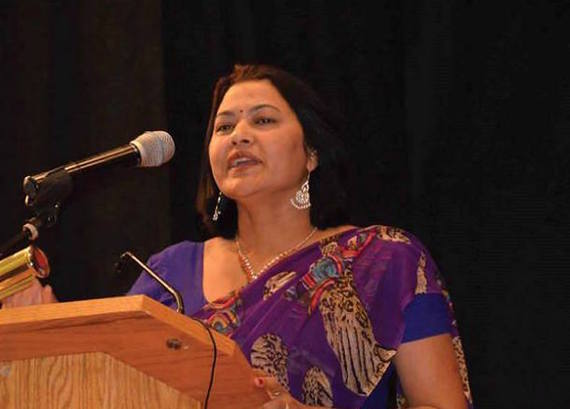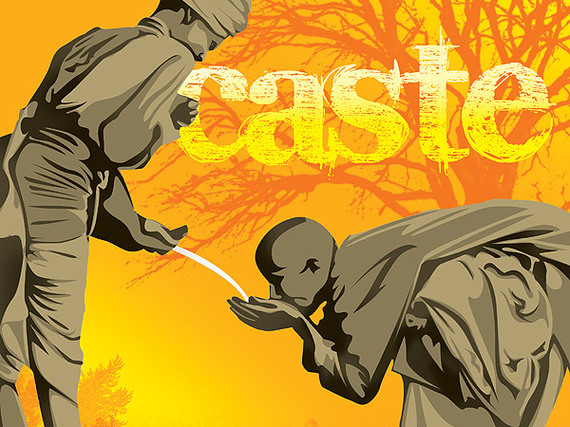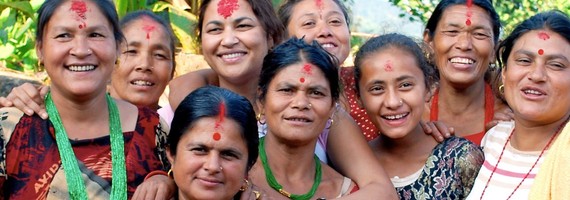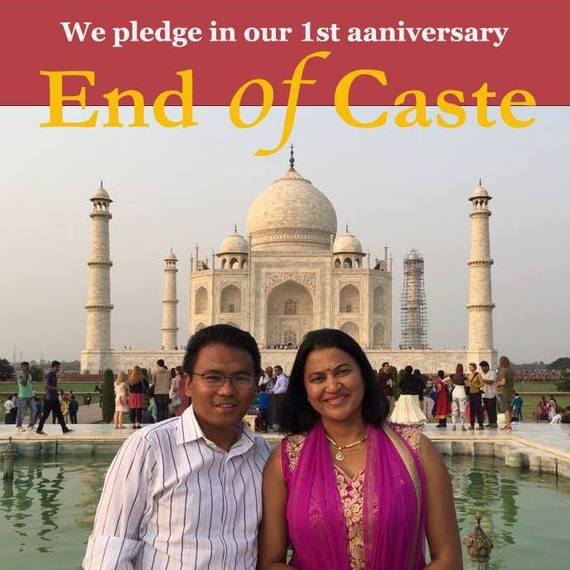-A Dalit woman had been beaten for touching the water pipes in Tokha of Kathmandu. Kamala Nepali a long time resident of the area was in a dispute with Shanta KC of the same place over filling water at tap near Shanta's house for some time.
-Six Dalit women were beaten for using public well in Siraha district of Nepal. This incident happened when a Dalit woman had a small argument with a man, while using a public well to fetch drinking water.
-The 'so-called' upper-class people of Suga VDC (Mahottari district of Nepal) resorted to dirty tactics to pressurize the Dalits to renounce their decision traditional work of clearing carcass.
-A landlady expelled a Dalit student preparing for MBBS on the basis of his caste. The landlady, Jamuna Bhattarai, a health worker, ousted student, Ganesh Pariyar of Lamjung, although she had already agreed to rent a room in her house in Syuchatar, Kathmandu to the student.
Caste discrimination is the shame of modern Nepal, and those are just a few examples.
In 1962, a law was passed making it illegal to discriminate against other castes led all caste to be equally treated by the law. However, the Nepalese caste system is still thriving and discrimination is deeply rooted in the Nepalese society.
Dalits are at the bottom of the caste system in Nepal. They still face widespread discrimination in Nepal. They are also known as so-called 'Untouchables'.
They are not allowed to enter temples. They are not allowed to touch food at common gatherings. And they are not allowed to use the public taps and drink water.
Dalits are still beaten by upper caste people in Nepal. Caste-based discrimination and untouchability are also in practices within Dalit community that is intra-Dalit discrimination. However, the constitution has banned the practice of untouchability.
UNTOUCHABLE from Join the Lights on Vimeo.
Documentary about Bishnu Maya Pariyar. This documentary follows human rights activist Bishnu Maya Pariyar as she journeys across Nepal to return to the village where she was born and raised.
Trumpeting Against DiscriminationBishnu Maya Pariyar, a woman from so-called untouchable family, one of the famous activist, is trumpeting against this discrimination, which is remarkable from Nepal to the USA. She suffered a nightmare childhood where she was heavily discriminated against for belonging to the Dalit.
For her being the champion of improving lives of marginalized women and children in Nepal, Pine Manor College, Chestnut Hill, Massachusetts had awarded her honorary Doctor of Letters (D. Litt.). After that, she is famous as 'Dalit and Women Activist Dr. Bishnu Maya Pariyar'. Doctor of Letters is an academic degree, a higher doctorate that may be considered to be beyond the Ph.D. and equal to the Doctor of Science (Sc.D. or D.Sc.).
Dr. Pariyar is well known because of her dedication to protecting Untouchable and Dalit women's rights, domestic violence victims, and basic human rights, and because of her bravery in surmounting discrimination. She overcame many hurdles to receive her powerful position as both a social activist and an advocate for human and women's rights.
A Fight For Right
Dr. Pariyar was born in Gorkha district of Nepal. Dalit literally translates to "oppressed," which is a fitting description for Dr. Pariyar's early life. While this oppression was horrible for her, it inspired her passion for fighting for rights.
Being part of the Dalit caste meant that Dr. Pariyar grew up in poverty and her parents struggled to support her and her eleven siblings. Her parents encouraged her to one-day break free of the hurtful traditions of the Nepalese caste system. Their encouragement enabled her to fight against discrimination.
According to her, She was active in social work since her childhood. When she was 10 years old, there was discrimination even when playing with friends. They could come inside her house but she couldn't go inside their houses because she was a Dalit. The experience hurt her very much.Struggle For Education
After completing her primary and middle school study at her village, she went to another school where she trekked 4 hours every day from her home. While in school, she continued to face great financial difficulty as well as discrimination. Despite her struggles, she always placed first in her class. After high school graduation, she had nowhere to go, as her parents could not afford to send her further study. But, She moved to Kathmandu and joined a college there.
While attending college in Kathmandu, she faced great financial difficulty, forcing her to cook food for twelve people who worked in a garment factory. She also worked at a restaurant. Later, an American peace corps volunteer started sending money via another American woman. That was a major turning point in her life. Their investment in her future was the key factor to her being able to complete her studies and gain the relevant connections and experience she needed to begin her human rights work.
Dr. Pariyar came to the USA in 1999, with the help of an American woman named Eva Kasell. Eva was like her godmother, who helped and supported her a great deal. During her first semester of college in the USA, she attained fluency in English. After that, Pine Manor College awarded her a full scholarship for earning top grades. In 2004, She earned her Bachelor's degree in social and political science with many awards including President's Cup Award, Excellent in Political Science.
The following year, Dr. Pariyar had started working as an advocate against domestic violence at Asian Task Force Against Domestic Violence. There, she attained much experience and learned many things related to abuse of women and domestic violence.
In 2005, she joined for her Master's degree study with the full fellowship at Clark University from where she eventually graduated as an International Development and Social Change major.
Commend Her Struggle For Untouchable Women's Rights
Dr. Pariyar's life has seen many ups and downs but, despite its difficulty, she has received more than twenty-five awards nationally and internationally. She was awarded the Perdita Huston Activist for Human Rights Award by United Nations Association of the USA, Washington DC in recognition of the life and work of outstanding advocacy for women's rights in the developing world.
In 2006, she was also a recipient of Bridge Builder 2006 by Kennedy School of Government, Harvard University, Cambridge, Massachusetts, which recognizes grassroots leaders in the international development and community organizing.
In 2007, World Bank Family Network, Washington DC awarded her Margaret McNamara Memorial Award which is awarded to women committed to improving the lives of women and children in their home countries.
Likewise, in 2015, City of Louisville, Kentucky, United States has announced "Dr. Bishnu Maya Pariyar Day" on September 27 to commend her struggle for women's rights and domestic violence in Nepal as well as in the USA.
Since 2004, Dr. Pariyar has been working for domestic violence and Dalit Women's Rights. During her professional career as domestic violence advocate, she had worked with Asian Taskforce Against Domestic Violence, Neponset Health Center and HaborCov in Boston area. In 2015, she moved to Jersey City, New Jersey where she works as Outreach Educator at CarePoint Health Group.
Tirelessly Working For Dalit Women And Children
Dr. Pariyar has been tirelessly working for Nepal's rural marginalized and Dalit women and children since 1996. She co-founded ADWAN, which stands for Association for Dalit Women Advancement of Nepal. She is the founding and current President of ADWAN.
In the USA, she also co-founded EDWON (Empower Dalit Women of Nepal) in 2003. Her organizations helped over thirteen thousand Nepalese children go to school and helped over ninety-seven girls go to college. Out of those, twenty-two graduated with B.Ed.
ADWAN has 64 women groups in seven districts in Nepal and it is helping thousands of women by empowering financially, educationally, and socially. They now become the agent of change. Her organization ADWAN helped hundreds of earthquake victims by providing relief packages and building homes. Dr. Pariyar hopes to help Nepalese overcome the hardships imposed by the unfair caste system.
While the caste system is no longer legal in Nepal, its stigma is still deep-rooted in the culture there, and Dr. Pariyar would like to see an end to the suffering that she herself endured as a child.



